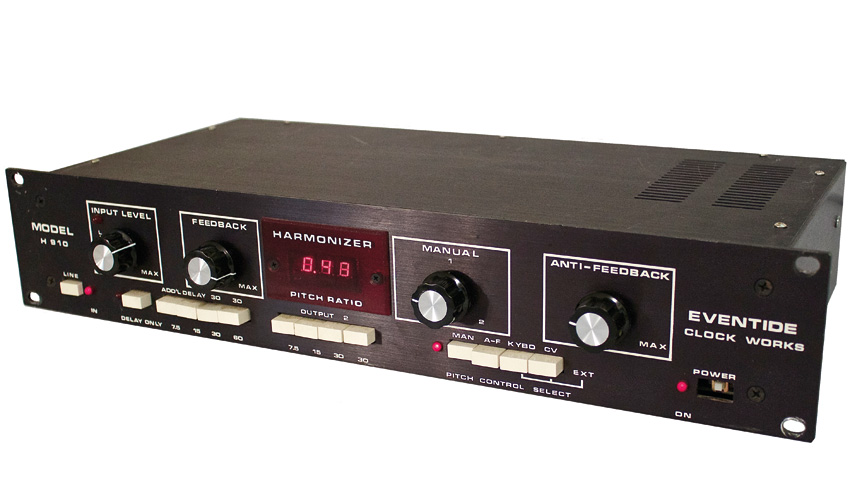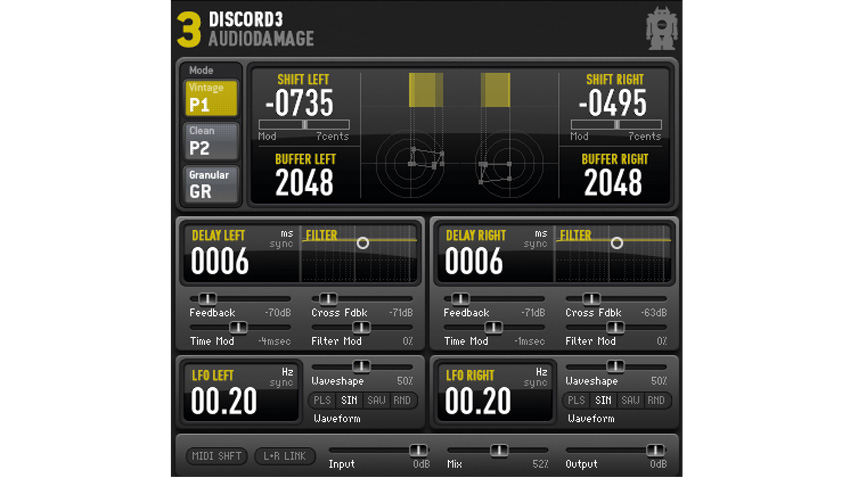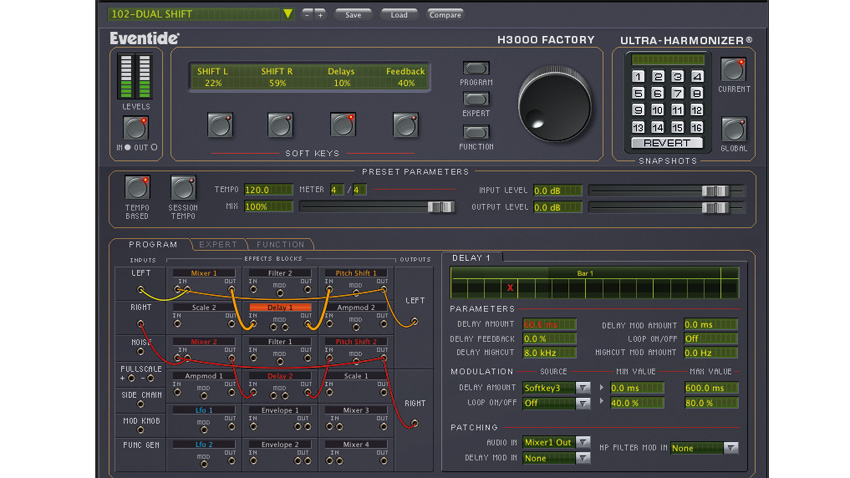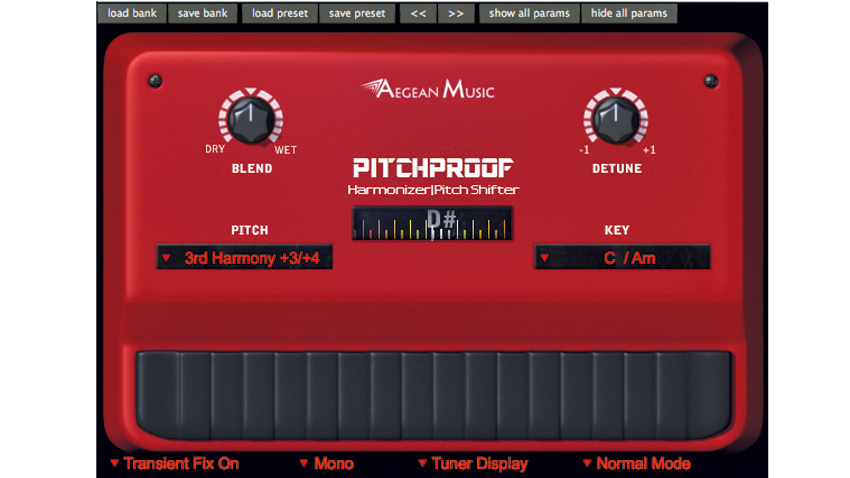Blast from the past: Eventide Clock Works H910
Pitchshifters may be readily available today, but back in 1974, the startling effects produced by this one‑trick wonder were revolutionary

Want all the hottest music and gear news, reviews, deals, features and more, direct to your inbox? Sign up here.
You are now subscribed
Your newsletter sign-up was successful
Image courtesy of Perfect Circuit Audio
Eventide. The name itself evokes a sense of awe and wonder among engineers and producers, as if it should be spoken in hushed, hallowed whispers. This level of respect is not undeserved, as anyone who can afford their lofty mult-ieffects units can attest to. A new H8000FW will set you back £4600. Even the 30-year-old H3000 still goes for a pretty penny on the secondhand market. Why? In a word: quality. Whether it's called upon for delay, reverb, EQ or dynamics, an Eventide processor will do the job and do it very well indeed.
Eventide Clock Works Inc was started back in 1971 by recording engineer Steven Katz and inventor Richard Factor. They teamed up with business attorney Orville Greene and began producing phasers and groundbreaking delays that drew upon Random Access Memory (RAM); but it would be their "Harmonizer" that rocketed this part-time avionics company to success.
Wearing their love of music on their sleeves, they dubbed the unit the H910 (after The Beatles' One After 909). Designed by Anthony Agnello, the 2U rack-mountable device combined digital delay with an astonishing (by 1974 standards) pitchshifting process. Incoming pitches could be transposed up or down a full octave, and pitchshift could even be controlled by the notes played on an attached voltage-based keyboard. Delays were meant to be used as a doubling effect and topped out at 112.5ms. Two different pitchshifted signals could be produced, delayed and then spat through a pair of outputs. You could adjust the delay feedback and use the 'Anti Feedback' function to help tame the resonant peaks of the signal.
A child of its time
By today's standards, this seems like pretty tame fare, but the producers, engineers and musicians of the day ate it up. Eddie Van Halen bought two of them to use simultaneously; The Residents' Duck Stab LP was slathered in the thing; and most famously, Tony Visconti used it to treat the snare drum sound on Bowie's Young Americans single (proclaiming that it "fucks with the fabric of time!"). Other early adopters included Jon Anderson of Yes (who beta-tested a prototype) and AC/DC on Back in Black.
The H910 would be superseded by the more powerful H949 (much-loved by Jimmy Page - it was the only digital device in his rack back then) and the effect eventually simply rolled into the company's multi-effects units like the H3000 and DSP4000.
The H910 was the first commercially available digital pitchshifter and, like all vintage gear, is possessed of a sound all its own. Later models provided a 'de-glitch' circuit to sweep away digital artifacts, but - wouldn't you know it? - those very artifacts are now seen as an essential, desirable part of the H910's character.
Want all the hottest music and gear news, reviews, deals, features and more, direct to your inbox? Sign up here.
There have been a few plugins aimed at recreating the classic Eventide sound - not least being a 1:1 clone from Eventide's own discontinued Clockworks Legacy bundle. Fortunately, you can still get an authentic taste with those listed below.
Three great H910 emulations

Audio Damage Discord 3
When Discord first hit the scene, it looked for all the world like an Eventide product and, thankfully, it managed to sound like one too. Now in its third incarnation, Discord has grown into a far more capable plugin, but clicking on that Vintage P1 button will still send you straight back to 1974. Gritty and gorgeous.
FULL REVIEW: Audio Damage Discord 3

Eventide H3000 Factory
Alas, Eventide no longer produce their Clockworks Legacy bundle so, like many engineers, you'll just have to 'settle' for an H3000. The H3000 Factory plugin offers everything the H910 could do and a heck
of a lot more besides, with none of the headaches of peering into the hardware version's dinky display.
FULL REVIEW: Eventide H3000 Factory

Aegean Music Pitchproof
Modern pitchshifter plugins abound and go far beyond what the ancient Eventide can do. Even better, some of them are free, like this one from Aegean Music. Though it lacks the delay processing found on the H910, you can always add one to the signal path to help things along. If you really want to be clever, throw a bitcrusher into the works.
FREE DOWNLOAD: Aegean Music Pitchproof


Computer Music magazine is the world’s best selling publication dedicated solely to making great music with your Mac or PC computer. Each issue it brings its lucky readers the best in cutting-edge tutorials, need-to-know, expert software reviews and even all the tools you actually need to make great music today, courtesy of our legendary CM Plugin Suite.
